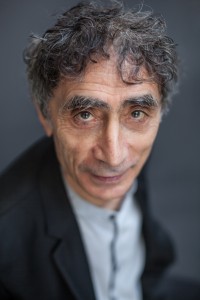
Let’s look at addiction not from the point of view of the harm it does, which is obvious for all of us, but what did it do for you? What did you get from it? What was right about it? The American researcher, Dr. Vincent Felitti, said that the problem was dismissing addictions as self-harming behaviour. He believed it ignores their functionality in the life of the addict.
Begin this question with yourself, whether the addiction pertains to yourself, your friend, your family member, or your client. Don’t think about what’s wrong with this; they already know what’s wrong with it, unless they’re in deep denial. The question is, what is right about it.
Let’s find out from you. What did it do for you? What did you get from it that you liked? If you didn’t like it, if I didn’t give you something, you wouldn’t have done it. You’re not that stupid.
There was a client of mine who said, “I’m not afraid of death. I’m more afraid of living.”
Responses:
“It gave me relief from suffering and pain.”
“It chilled me out; made me feel euphoric.”
“It gave me a sense of control.”
“It gave me a feeling of connection.”
“It made me more comfortable socially.”
“It made me feel powerful.”
“It helped me to feel safe.”
Let’s look at these things. We could go on, but I think we’ve established the point. Relief from suffering; relief from pain. Euphoric. Joy, in other words. A sense of control; a sense of safety. Social connection with other people. Connection in general.
What are we talking about people? We’re talking about normal human qualities; we’re talking about normal human desires. Is there anybody who does not want to be connected? Who does not want to feel some joy? Who does not want to feel calm? Who does not want some relief from their pain, or from their distress? The addict just wants to be normal. The real question is, “What happened to them so that they want these normal human qualities of connectedness, joy, a sense of agency, power in your life, connection with other people, connection with yourself, and connection with the universe?”
These normal human qualities are actually our birthright; not only our birthright, but part of who we are. Why did you want them? You only wanted them because you knew them. Something in you knew that there is connection; something in you knew that there is such a thing as agency, authentic power in your life. You knew that there was connectedness. If you didn’t know that, you wouldn’t have craved it. You didn’t read about it in a book, you didn’t see it in a television program; it’s part of you, but you felt disconnected from it.
So the real question is, “How did you get disconnected from yourself?” For those of you that are feeling hopeless, let me tell you something. The very fact that you’re here means that there’s a part of you that knows better. If part of you didn’t know better you wouldn’t be here; you would be out there using, or doing. So that authentic part of ourselves is not that hard to look for. It’s there, we’re just disconnected from it and we don’t recognize the disconnection is a disconnection – we think it is a reality.
Let me read you a quote by one of my favourite teachers, Almaas. He’s talking about childhood. He says, “The fundamental thing that happened, and the greatest calamity, is not that there was no love or support; the greater calamity, which is caused by that first calamity, is that you lost the connection to your essence. That is much more important than whether or not your mother loved you.”
So the first calamity is the lack of love, or the lack of love getting through to you, but the greater calamity caused by that first calamity is that you lost the connection to your essence. Hence, addiction is actually our way of seeking our essence. Joy, connection, authentic power, peace of mind – this is our essence, and the loss of those qualities causes disconnection from our essence. The addiction is a poor attempt, but an earnest one, to regain those qualities.
Of course we end up further divorced from ourselves when we engage in addictive behaviour; that’s why it’s a problem. But let’s honour it for what it is. Let’s honour the addict for seeking their selves.
Excerpted from a Beyond Addiction program presentation in Toronto in 2014.
For upcoming Beyond Addiction programs see https://beyondaddiction.ca/events/training-programs/
For workshops with Dr. Gabor Maté, see http://drgabormate.com/events/

Thank you for posting. I had recently come to realise this for myself; that I was lacking a “connectedness” which my addiction and subsequent 12 step recovery had offered me. Although I ought to place principles above personalities I was so disheartened at the gossip that I stopped going to meetings. I have felt very distanced, unable to move beyond my chronic uniqueness. Clearly a more conscious effort on my part to reconnect with a power greater than me is necessary. Very interested that you are as close as Owen Sound. Namaste
Thanks for sharing, Judy. Connection is key, as is honouring our uniqueness. Let me know if you would like to connect in Owen Sound sometime.